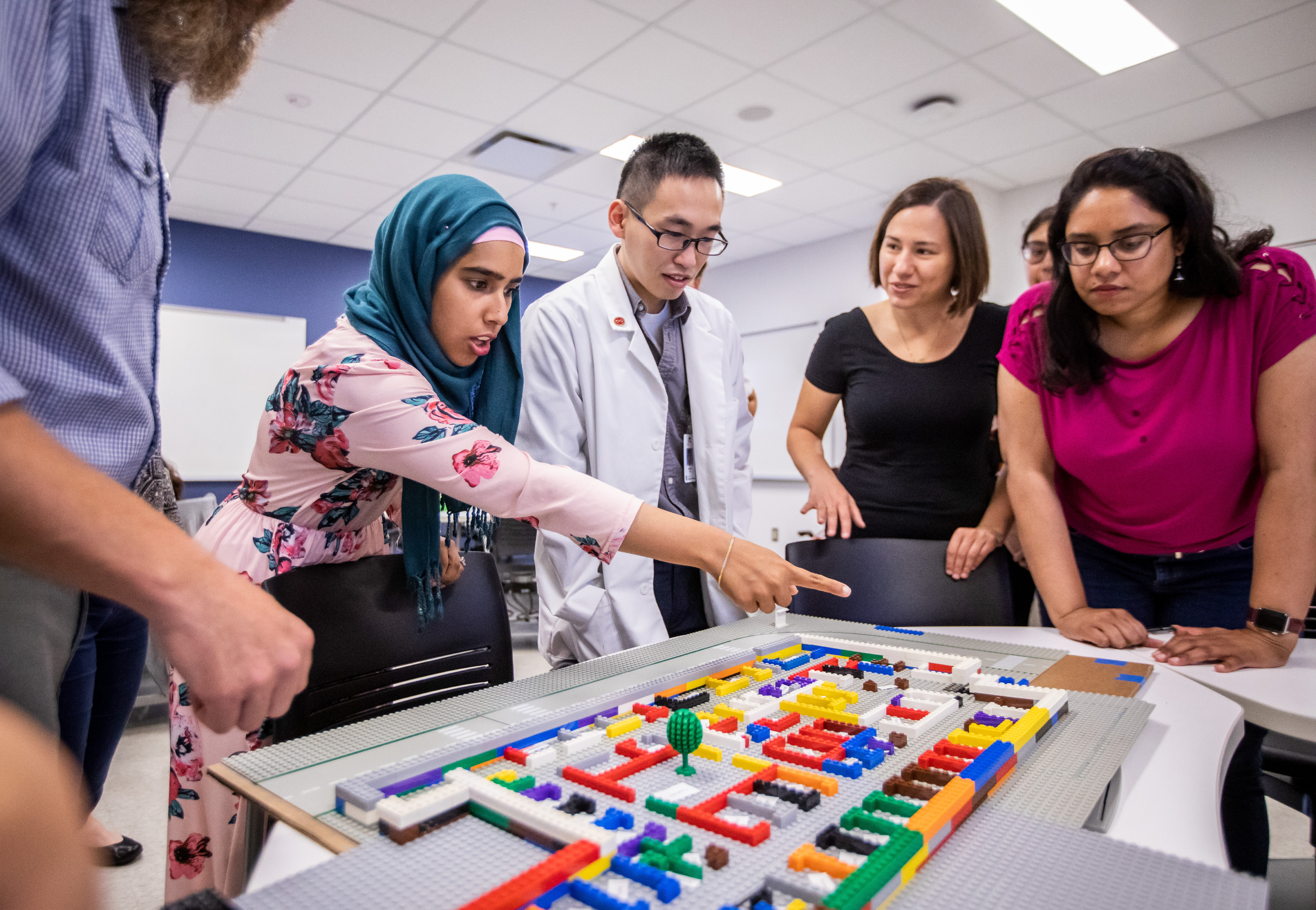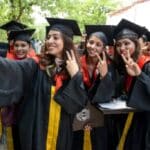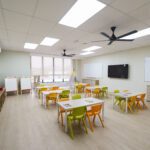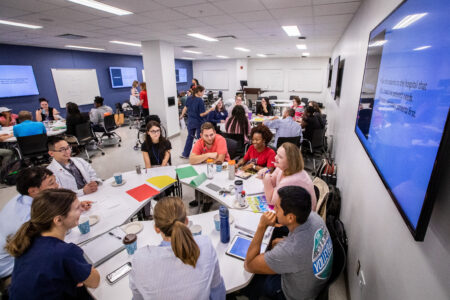At the University of Illinois Urbana-Champaign’s Department of Health and Kinesiology, faculty members, staff, researchers, and students are all striving to change lives by improving human movement and mobility conditions.
Yongjoon Kim from South Korea is pursuing a PhD in Kinesiology here to do just that.
“I was driven by a strong desire to learn and engage in collaborative research with renowned scholars in the field of physical education pedagogy,” Kim says. “Furthermore, the UIUC kinesiology programme, recognised for its productivity of both interdisciplinary research and distinguished scholars, served as another key driver for pursuing a PhD here at Illinois.”
For Minsook Kim, also from South Korea, it was her experience as a high school physical education (PE) teacher that led her to the PhD programme. “I felt great pride in inviting young students to the joy of movement, but I often felt PE as a subject was being marginalised and that I had to prove myself to be accepted as a regular member in the school community,” she says. “Our lab’s work regarding the workplace experiences of PE teachers really resonated with me at the time, which led me to pursue a PhD at UIUC.”
Though having different reasons for enrolling for a PhD here, both students benefit from a diverse faculty with a variety of research interests in science, health, physical activity, technology, and well-being that can help achieve their respective goals. For example, Minsook is interested in continuing the professional development of PE teachers as lifelong learners themselves, while Yongjoon’s work revolves around two central questions: how do socialising influences shape the way physical educators work, or vice versa, and what are the antecedents and consequences of teacher motivation in physical education?
The doctorate programme answers all these questions by branching into five areas of study – cultural, interpretive, and science studies, exercise physiology, exercise psychology, pedagogy, and physical activity, and motor control/biomechanics – the latter was an area alumnus Jonghun Sung specialised in.
“This project primarily targeted individuals with disabilities, aiming to improve their quality of life through exercise and educational programmes,” he says. “Through this research, I believe our department, along with the community, demonstrated a commitment to addressing the needs of people with disabilities who may have been overlooked, thereby enhancing awareness and meeting their actual needs, which ultimately improves their quality of life.”
Today, Sung is back in his home country teaching at Inha University’s Department of Kinesiology. He is also engaged in research aimed at enhancing the quality of life for wheelchair users in South Korea.
“The professionalism and dedication I bring to my current teaching and research roles were significantly shaped during my time in the UIUC programe, which provided the foundational skills for my career,” he says.

The diverse study areas give future kinesiologists the opportunity to engage in kinesiology-based research that ranges from basic science to applied interventions. Source: University of Illinois Urbana-Champaign
Your UIUC PhD is never limited to research laboratories. You’ll gather knowledge from everywhere in the university, whether it is in a classroom, through mentorships, or through simple advice from one of the department’s kinesiology experts. “Outside my lab experience, I was fortunate to be able to meet and learn from excellent kinesiology professors throughout my coursework,” Yongjoon says.
He noted that Dr. Jamie O’Connor, Dr. Sean Mullen, and Dr. K. Andrew Richards each come from diverse backgrounds and have interesting research agendas that students can benefit from. “They are not only passionate educators, but also keen researchers who have significantly shaped my research direction in profound ways,” Yongjoon says.
The extensive lineup of professors is not your only source of support at the department. Here, there will be kinesiology seminars for you to interact and connect with students from other specialisations. “Through these interactions, we were able to build camaraderie and support each other during challenging times, which significantly aided us in successfully completing the long PhD journey,” says Sung. “Some of these individuals have become important friends both professionally and personally, and we still occasionally exchange research ideas and stay in touch.”
Follow the College of Applied Health Sciences at the University of Illinois Urbana-Champaign on Facebook, Instagram, LinkedIn, and X.













